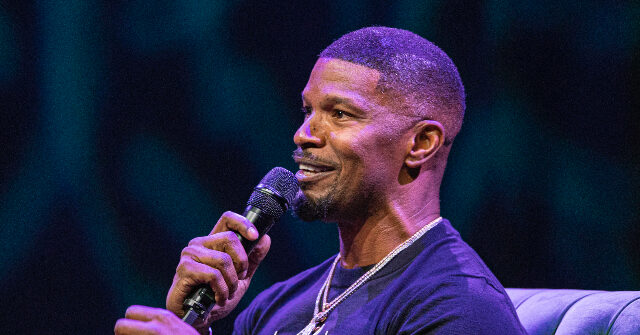In his recent Netflix comedy special, “What Had Happened Was,” Jamie Foxx seized the opportunity to humorously address rumors surrounding his health and the controversies involving music mogul Sean “Diddy” Combs. Foxx playfully mocked Combs, making light of the atmosphere at parties he attended, suggesting it was “slippery” and implying that something was amiss, like the atmosphere at Combs’ social gatherings. This comedic riff comes in the wake of Foxx suffering a life-threatening stroke that led to a lengthy recovery process, during which rumors circulated that Combs might be involved in his medical emergency. Foxx’s comments were not just a critique of Combs but also a reflection of the odd and sometimes unfounded nature of internet speculation.
The comedian shared an anecdote about how his life hung in the balance during his stroke, stating that he “saw the tunnel” but not the light typically described in near-death experiences. Instead, he jokingly claimed it was hot in that tunnel and suggested he might be meeting the devil, only to whimsically question if it was actually Combs waiting there. Foxx’s humor, rooted in his personal experiences with serious health issues, showcased his ability to blend sensitive topics with comedy, creating laughter from moments of fear and uncertainty.
Foxx’s stand-up also included commentary on the bizarre situation surrounding Combs, particularly following a raid on the music mogul’s properties. Authorities reportedly discovered over 1,000 bottles of baby oil and lubricant, leading to jokes about the nature of the findings and their implications. Through this comedic lens, Foxx brought attention to the absurdity of high-profile scandals, illustrating how life and art can intersect in unexpected ways, especially when uncomfortable truths come to light.
However, the context of Foxx’s humor was underscored by the serious legal troubles facing Combs, who has been incarcerated since September of the previous year after a federal indictment. The charges against him are severe, including accusations of abuse, racketeering, and sex trafficking. Combs has maintained a plea of not guilty, but the gravity of the situation looms over his upcoming trial set for May 5, raising questions about his future and the kind of legacy he will leave behind.
In contrast to the comedic elements, Foxx took moments in his special to express gratitude for his recovery, highlighting the role of faith and prayer in his healing journey. This shift from humor to a serious reflection on life and gratitude serves to remind audiences about the fragility of life and the importance of resilience. Foxx’s experience adds depth to his comedic narrative, allowing viewers to connect with him on a more personal level, transcending the boundaries of traditional comedy.
The juxtaposition of Foxx’s humor against the backdrop of serious accusations against Combs paints a vivid picture of the entertainment industry’s complexity, where personal struggles, public scandals, and the power of comedy intertwine. Foxx’s skit becomes a commentary not just on Combs but also on how celebrities navigate their public personas in a world rife with speculation and judgment, making it a timely reflection on fame and its pitfalls. The exploration of such themes through comedy not only entertains but prompts deeper thought on the realities that often lie beneath the surface of celebrity culture.

